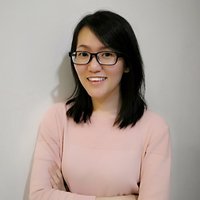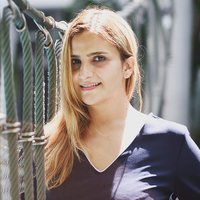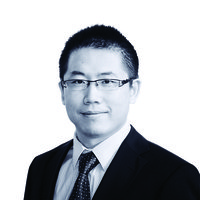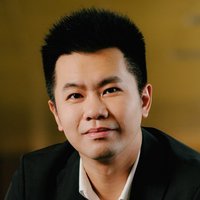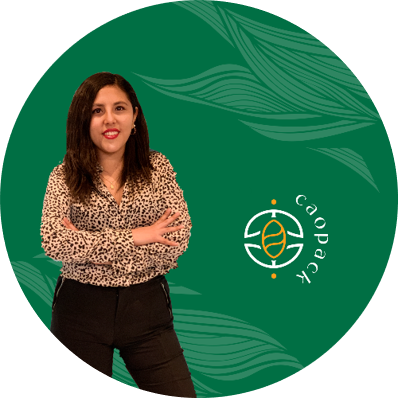However necessary it may be to produce food, its production and consumption have undesirable consequences. One consequence is the generation of waste such as cocoa shells, fruit peelings, and bagasse from beer. Another is the pollution generated by plastics and other non-biodegradable materials used for wrapping and packaging. Meanwhile, biodegradable paper and cardboard packaging fuels deforestation and requires high water consumption.
Alejandra Cuba, a young Peruvian food engineer, decided to use her knowledge to improve these problems with a single approach: using the waste generated during food production to make packaging for chocolates or soaps. Thus was born her start-up, CaoPack, whose commitment to the circular economy to reduce food pollution has made Alejandra Cuba one of the winners of MIT Technology Review in Spanish's Innovators under 35 Latin America 2020.
The young woman explains: "We want to offer sustainable alternatives to paper—which causes deforestation and uses large amounts of water and chemicals—plastic and organic waste. Fifty percent of the waste in landfills comes from food waste." Faced with this situation, CaoPack stands as an alternative capable of saving thousands of trees, reducing the consumption of water and chemicals and reducing pollution from plastics and food by-products.
The materials reused by CaoPack in the form of packaging can be used in dry products from both the food and non-food industries and are also water soluble. Its creator explains: "We are motivated to create biomaterials that contribute to society and to the circular economy of our country with packaging that does not harm the environment when it is thrown away," says the innovator.
Its main raw material is cocoa shells. CaoPack transforms this waste to obtain a mixture similar to paper pulp with which it manufactures the packaging. It does not use chemicals in this process and its water footprint is eight times smaller than that of the paper industry, according to Cuba.
This innovation is in the process of being patented and tested with food and soap companies. In the long term, the young innovator seeks to implement this new environmentally friendly packaging at the industrial level. She plans to reach the European Union and the United States, where the largest potential market is.
The executive director of Viktoys (Peru), co-founder of Fab Lab Peru and member of the jury of Innovators under 35 Latin America 2020, Víctor Freundt, has praised CaoPack with "not only focusing on reducing consumption [of plastics and paper] but also using natural materials for the creation of a new type of packaging."
